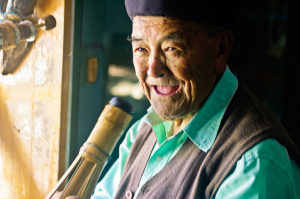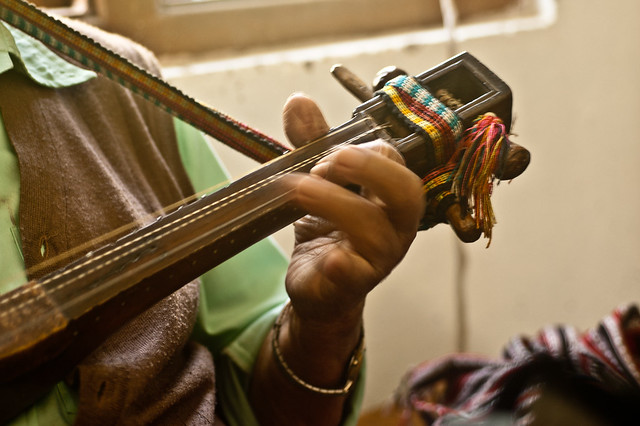Sonam Tshering Lepcha, a major champion of the Lepcha culture, died at age 92 in Kalimpong on July 30. His death was noted by Indian Prime Minister Narendra Modi, the Chief Minister of West Bengal Mamata Banerjee, and by a range of major Indian news sources. A tribute last week summarized his many accomplishments and his creative contributions to Lepcha culture. The author of the tribute, Mandira De, interviewed him in May of 2019.

She met the very spry cultural icon in his office, which was located in the Lepcha Museum in Kalimpong, an institution that he founded and used as one of his showcases for promoting Lepcha culture. The front table in the museum was filled with a number of Lepcha musical instruments. While he tended to mumble due to his age, he was still able to play tunes on the flutes and other musical instruments surrounding him. He used small wooden instruments to imitate the calls of a bird and the response calls of another bird. She found it to be “an amazing experience.”
He explained that as a boy—he was born in 1928—he had to join the British Army in India during World War II because his older brother had died and he needed to find a source of income to help support the family. But he was more interested in art, literature, music and singing so he returned to his village. He wanted to be creative. In 1967 he composed a Lepcha National Anthem. He went on to compose over 200 folk songs and he created many folk dances. He put together a dance drama called “Teesta Rangeet.”

He told the author that he was the first Lepcha to have a song he had composed broadcast on All India Radio. He didn’t mind telling her about his various awards: the Sangeet Natal Academy Award in 1996 and the very prestigious recognition from the national government, a Padma Shri Award in 2007. He said that those awards only made him more committed to promoting the Lepcha cultural traditions.
After a couple hours of him showing off his collections, it was time for the writer to leave. He had demonstrated and explained Lepcha culture tirelessly. “I felt as if I was amidst the Lepcha world,” she concluded.